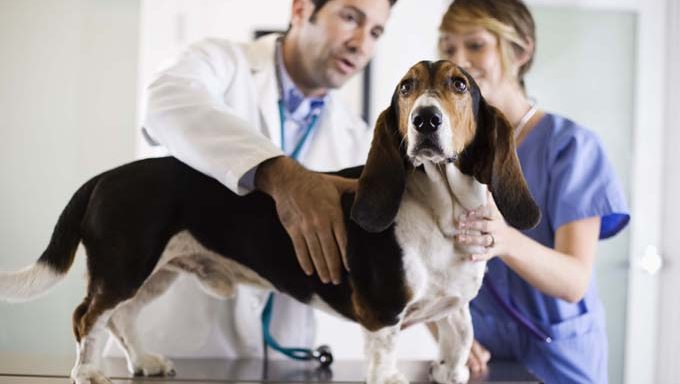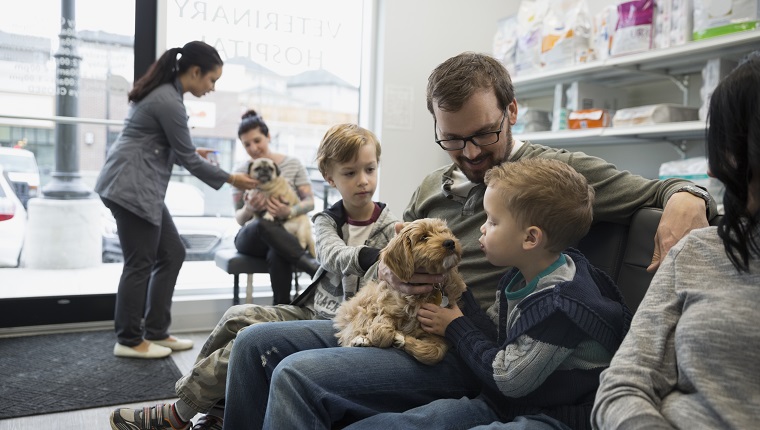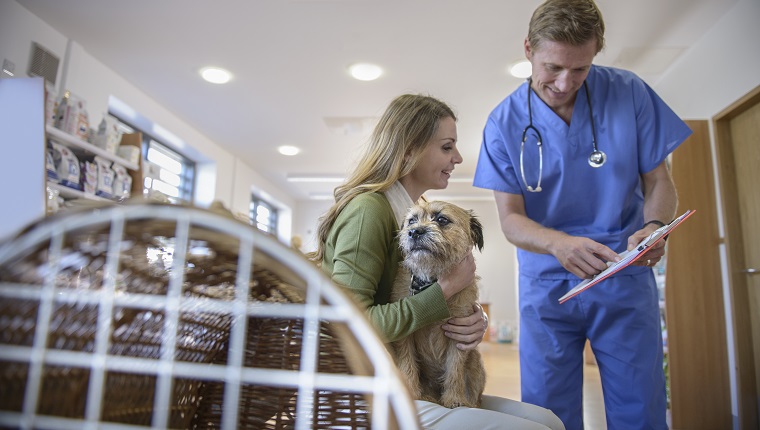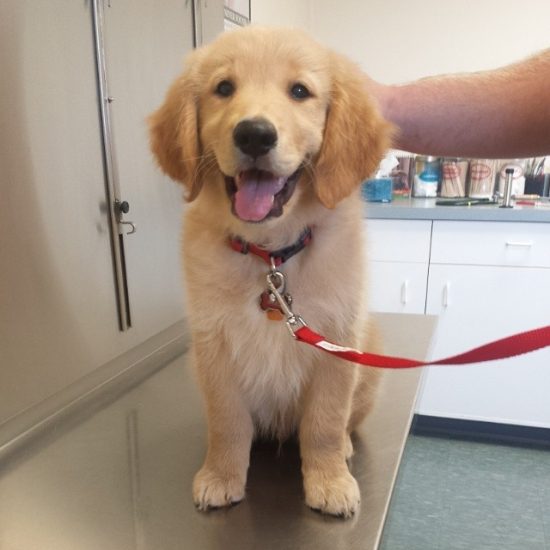Steps To Take When Choosing A Good Vet
Whether you’re a new pet owner or have owned several pets for years, it’s a good idea to select a veterinarian before you actually need one. This way, you’ll be working with someone who you feel comfortable with and seems to have a good rapport with your pet rather than a vet who is simply nearby, open, or listed first in the Yellow Pages
Check Out The Website
Look at each veterinarian’s website for a glimpse of the vet’s personality, staff, and capacity. While someone can be an excellent vet and still have a less-than-impressive website, it’s still a quick way to narrow down a long list
Ask For Recommendations
There are plenty of resources you can use to get recommendations for a vet. Many animal-centered organizations, like pet shelters, boarding businesses, and grooming salons, as well as other pet owners, will generally be happy to provide you with the name of the vet they know and trust.
Understand How The Clinic Operates
Vet clinics can be run using a range of business methods, and you want to find the one that best suits your needs. Call the clinic and speak to the office manager or similar authority figure. Ask questions about hours, overnight care practices, billing details, and any other services associated with the clinic.
Meet With Each Vet
Once you have a short list of possible veterinarians for your dog, make appointments to meet with each vet. Schedule some time to talk with the vets without your pet. Ask a series of questions about important topics, such as their training, whether they participate in continuing education, their approach to treating pets, and the variety of services their vet clinic provides

How to Choose a Veterinarian
I’m going to take a guess that you’d rather not find yourself poking through Yelp reviews for a good vet the morning after your dog has kept you up all night having diarrhea. (Yes, my insight is amazing!) The best time to pick a vet is, of course, before you even have a dog. Or, if you happen to have found the world’s cutest Dogalini on the street, then start looking for a vet about 5 minutes after you get her home. Or, if you’re moving, then start new-vet-shopping right about the time you start to pack.
Ask for Referrals
Your friends probably aren’t vet-evaluating experts any more than you are, but they can tell you whether the vet or the techs in an office manhandle the animals or coax them into cooperating, whether the office returns calls promptly, and how good the vet is at explaining health issues.
Check Qualifications and Expertise
DVMs and VMDs are the general practitioners of the veterinary world. But you’ll find many who treat only “small animals” (a label that stretches to include your 130-pound Mastiff). Also, some vets work mainly with dogs, or cats, or “exotics.” A species-limited vet can be a big plus. Doctors for humans work with just one species, of course, and can usually use words to communicate with their patients. A general practice vet, on the other hand, has to cultivate knowledge about several species, and not one of his patients can say to him, “Doc, it’s a chronic burning pain and it started last Tuesday.” So it can be a big plus if your vet limits her practice to a few species, or just one.
Get a Tour
Call in advance, explain that you’re a prospective client, and set a convenient appointment – you don’t want to show up in the middle of an emergency, or at a just plain busy time. The whole clinic should be clean, of course. Do cut them some slack if a sick animal just vomited, urinated, or defecated, but overall the place shouldn’t reek. On your tour, keep a sharp eye out for the surgery room or suite. It should be squeaky clean, not used for storage or as a hangout for the office cat. If there’s a surgery taking place, you won’t be going in, but take the opportunity to make sure the office practices good sterile technique. Look for a full gown, mask, and gloves, not just a scrub top.
Ask About Pain Management
Weirdly specific, you think? Nope. Not only is pain a huge issue for sick animals, old animals, and animals recovering from surgery, but also how pain is managed tells you a lot about how up to speed a veterinary practice is. Once upon a time, in the Dark Ages, vets used to shy away from pain meds because they believed that animals in pain would remain quiet and thus heal more quickly. Notice I call that the Dark Ages: The truth is that good pain control speeds recovery and lowers the odds of certain complications, both in people and in other animals. As a behavior specialist, I often see pain contributing to aggression and other problems, as well.

Steps to Finding the Perfect Vet
When I adopted my first dog, Ralph, over 10 years ago, I had no idea how to choose a vet. How do you know what kind of practitioner is best for your particular dog, and once you choose one, how do you know if you’ve made the right choice? I complicated matters with several cross-country moves, which meant finding a new vet in a new place each time. We’ve also added to the family with another dog, Radar, and three rascally cats. Needless to say, after many years, many moves, and many veterinarians, I’ve become something of an expert on selecting the perfect vet for my pet family.
Know your pet’s needs in advance
Before you start visiting veterinary practices and asking questions, make a list of priorities for you and your pet. This will help you ask the right questions as you narrow down your options
Here’s my own checklist of veterinarian must-haves (but keep in mind yours may vary depending on your dog):
Knowledge and support for select holistic/alternative treatments, balanced with up-to-date facilities and cutting edge medical technologies and care.
Generous appointment times (I ask a lot of questions, and there’s nothing worse than feeling rushed at the vet).
Support for area pet rescue organizations (it’s important to me that my vet be invested in the local animal welfare community).
Smaller practice. I’m at the vet pretty frequently with my gaggle of pets, so I prefer a place where I know I can see the same doctor every visit and develop a friendly relationship with the staff. Many larger veterinary hospitals offer incredible care (and greater flexibility in scheduling), so it really comes down to personal preference.
How to start (and narrow down) the search
Once you’ve zeroed in on what you want from a veterinarian, it’s time to actually find a few candidates. Good old fashioned word-of-mouth is the best place to start.
Schedule a tour
Once you’ve found one or two potential vets, plan a facility visit without your dog to get a feel for the place itself. Any reputable veterinary practice will be more than happy to show you around and make you feel welcome

Tips for Choosing the Right Vet for Your Pet
When it comes to choosing a vet for your pet, it’s important to choose a veterinarian you can trust, and who you feel you would have a connection with. They’ll be responsible taking care of your best friend’s medical needs to ensure they live a long, happy and healthy life, especially when it comes to emergency care. It makes sense that you take the time to research the vets in your area to find the one that best works for you and your needs.
Establish the kind of care your pet needs
Not all vets treat every type of animal, so you’ll need a vet that deals with your pet’s species. You also need to think about the care that your pet will need. Do they need just routine care, or do they have a specialist condition that will require a different level of care?
Establish the vet’s accreditation and experience
Before you consider any veterinarian practice, check that they’re accredited by the Accreditation Program for Australian Veterinarians (APAV). You may also want to check out the qualifications held by the vet, and the veterinary assistants and nurses. The length of time the staff stay with the practice should give you an indication of the general working environment within the clinic itself.
How attentive are the staff to your pet?
The level of attention a vet gives to both you and your pet is a crucial factor for finding a great vet. If they are not attentive enough, it’s possible that they may miss vital clues of potentially more serious conditions. Take notice of how the vet and the practice staff interact with animals. Do they show a genuine love and concern for animals? How much time are they prepared to spend with your pet assessing any issues. You’ll be able to judge this from their body language and the way they treat the animals that come into their surgery.
How attentive are the staff to you?
While it’s important to ensure that your pet is getting the right level of attention from the vet, you also need to feel that they’re able to communicate easily with you. A good relationship with your vet relies on communication, shared values, and the feeling that you can ask questions when you don’t quite understand what is going on. You need to feel that your vet will listen to your concerns, and give you confidence in the way they diagnose and treat your pet.

How to Choose a Vet
If you are thinking of getting a pet, or already have one, then it is essential to register with a vet. You should do this while the pet is healthy, because it can take time to find the right vet for you and your animal. Don’t wait until the animal is sick to start looking around. When it comes to choosing a vet you need to balance several factors, including convenience, cost, expert knowledge, and compatibility
Keep your type of pet in mind. Not all vets will treat all species. Make sure the vet has experience with your species of pet. For instance, even if a vet has a very good reputation as a canine vet, this is useless if you own a rabbit, because the two species are very different.
Consider practicality. There is little use in registering with a perfect practice if they are a two or three hour drive away. In an emergency situation you may not have two or three hours’ time to spare. Always consider how quickly you can get to the practice in the event of an emergency.
Decide what services you need your vet to provide. If you have a low income, then cost may be a deciding factor. If your pet has a very specific health issue then you will need a vet that has the equipment, and knowledge, to treat that issue.
Make a list of veterinarians in your area. Do an internet search or look at a telephone directory, or the local press for adverts. Most clinics have websites so go to the website to get an idea of how many staff the clinic has, the facilities, specialities, and for the overall feel of the practice.